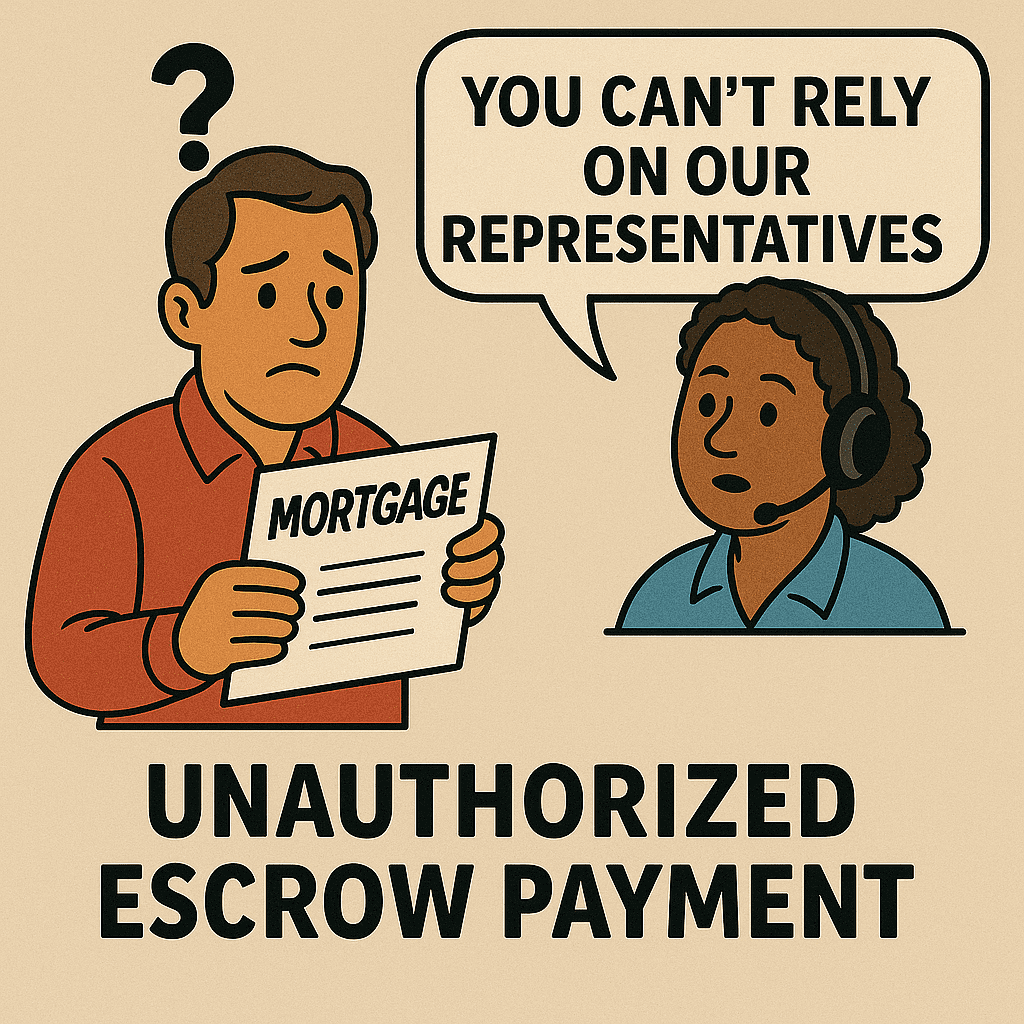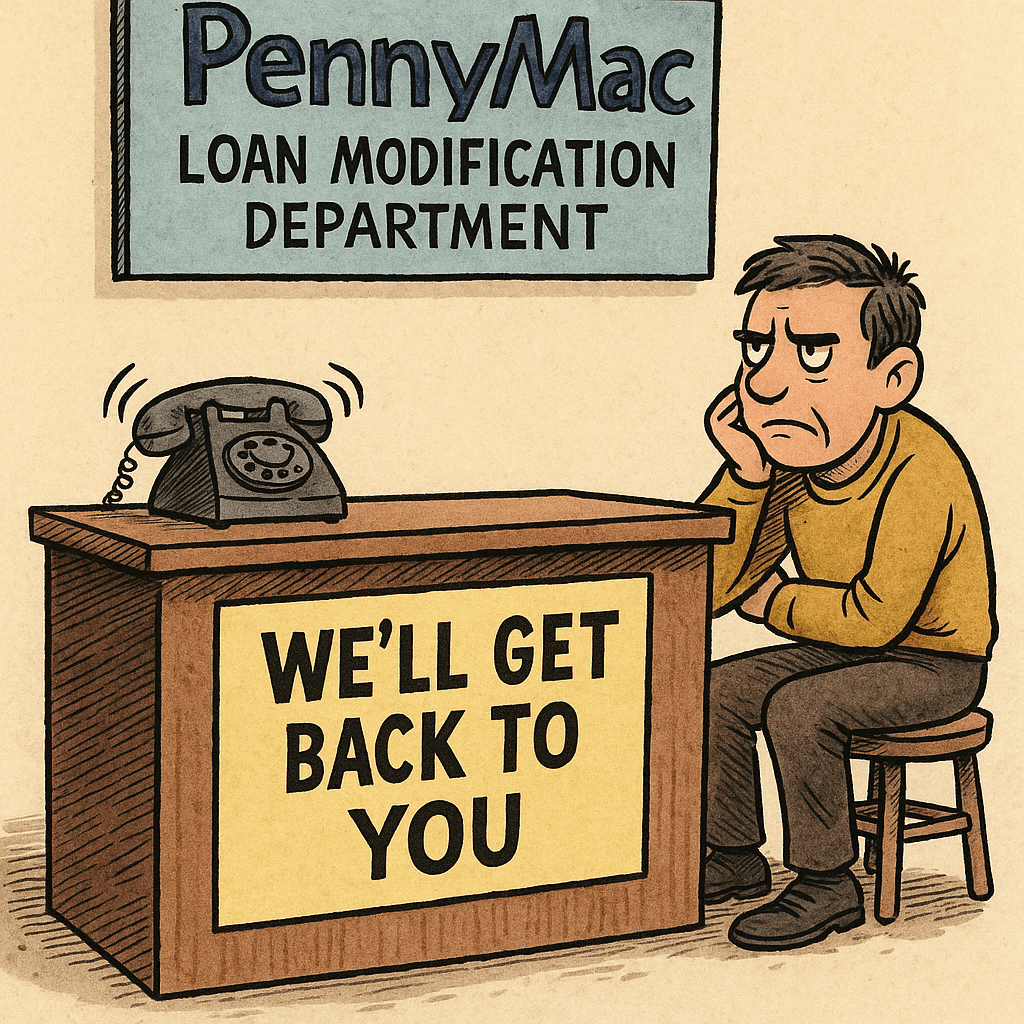When Mortgage Companies Cross the Line: Complaints Against Mr. Cooper, Wells Fargo, Freedom Mortgage, and Others
Every year, thousands of homeowners report serious issues with how their mortgage is handled. But when we looked closely at recent complaints submitted to the Consumer Financial Protection Bureau (CFPB), a few companies stood out.
In 2024 and 2025, borrowers across the U.S. filed alarming complaints against Mr. Cooper Group, Wells Fargo, Freedom Mortgage, Onity Group Inc., PennyMac Loan Services, and JPMorgan Chase. The stories reveal a pattern of misconduct that can cost homeowners thousands—and even put them at risk of losing their homes.
Mr. Cooper Under Scrutiny: Real Complaints Reveal Patterns of Servicing Breakdown
Consumers describe Mr. Cooper (also known as Nationstar Mortgage) as chaotic and unresponsive when errors occur.
One of the most common grievances against Mr. Cooper involves escrow mismanagement. Homeowners claim that Mr. Cooper failed to pay property taxes on time, which could result in tax penalties or liens.
A homeowner in Illinois reported narrowly avoiding having a tax lien placed on his home. He said he called Mr. Cooper five times and kept getting different explanations about why the company had failed to pay the property taxes from the homeowner’s escrow account. Eventually, the homeowner paid the taxes a second time, directly to the county, to avoid a tax lien.
Homeowners frequently complain that they are unable to speak with an actual person when they call Mr. Cooper. One homeowner described spending over four hours through various phone numbers “trying to reach a live person and all [they] got was automated messages with no way to reach a human being and no real answers.”

Wells Fargo: Years of Frustration with Loan Modifications and Broken Promises
Borrowers report being trapped in endless cycles of paperwork. Despite submitting all the requested documents, many say the bank repeatedly claimed something was missing, only to ask for the same information again and again.
One senior in Pennsylvania reported that she applied for a loan modification to keep her house. Still, every time she submitted the required documents, Wells Fargo claimed it hadn’t received them and asked her to resend them “over and over again.” She sent everything—income verification, supporting documents, and so on—but says Wells Fargo ignored the documents, denied her loans, and put her into foreclosure.
This pattern of stalling, misplaced paperwork, and unexplained delays is a recurring theme in complaints against the bank.

Other homeowners describe something even more alarming: being falsely accused of turning down help they say they desperately needed.
A Florida homeowner wrote that Wells Fargo claims he turned down mortgage assistance, but “that is a lie.” The homeowner explained that he would not have risked making his two young children homeless. Now, he says, Wells Fargo is giving him the runaround.
These stories raise serious concerns about Wells Fargo’s loan servicing practices, especially its handling of modification requests from families trying to avoid foreclosure. For many borrowers, the experience is not just frustrating. It feels like being set up to fail.
Chase Mortgage Servicing: Escrow Errors, Broken Promises, and Shifting Terms
Homeowners with mortgages serviced by JPMorgan Chase have reported a range of troubling experiences, from misleading information about loan terms to unauthorized escrow charges. These issues often lead to higher payments, confusion, and frustration.
One borrower was assured by Chase representatives that a variable-rate mortgage included a rate cap. Multiple employees confirmed this both verbally and by referencing the loan documents. But later, the borrower received a letter stating the cap wouldn’t apply after all. When they asked for records of prior calls, Chase told them that “you would need to file a lawsuit and subpoena” to obtain those recordings. The borrower was told they shouldn’t have relied on “information from their representatives,” even though they had been speaking with supposed mortgage specialists. The experience raised deeper concerns about Chase’s use of verbal-only assurances and “processes that avoid written communications.”
Another homeowner filed a formal complaint after Chase mistakenly disbursed a homeowner’s insurance payment from escrow, despite repeated assurances that it wouldn’t happen. The result: “a double payment for the policy,” followed by an “escrow analysis shortfall” that increased their monthly mortgage payment. Although the borrower had submitted proof that the policy had already been paid, Chase still sent the funds, leaving the borrower to cover the error.
Even borrowers whose loans had been newly transferred to Chase encountered issues. One homeowner had previously paid their taxes and insurance directly, without an escrow account. But after Chase took over servicing, an escrow account was added “without permission or cause,” and money began being withdrawn from their checking account. The borrower was informed that this was an error and received a refund, only to receive a new letter weeks later stating that Chase was restarting the escrow deductions all over again. They called it “a total waste of everyone’s time.”
These complaints paint a picture of a mortgage servicer that, according to borrowers, frequently changes terms, overrides prior agreements, and fails to communicate clearly. Sometimes, the servicer corrects mistakes only to repeat them later. These issues aren’t just frustrating for homeowners trying to manage their loans responsibly; they are also costly.

PennyMac: Miscommunication, Missed Payments, and Modification Confusion
Borrowers with PennyMac Loan Services report a pattern of poor communication, unreliable servicing, and costly errors, especially when it comes to loan modifications and insurance payments.
After losing their job, one homeowner reached out to PennyMac for help. A modification was quickly offered, but no one could answer basic questions about how it worked. Follow-up details were unclear, and later, the borrower learned he had “missed a payment” and had been reported as delinquent, despite being told those payments would be overlooked. The company, he said, “was quick to offer something they could not explain,” and “make assurances that turned out to be false.” The homeowner’s attempts to access the documents online resulted in only error messages.

Another Maryland borrower experienced repeated lapses in homeowners’ insurance because PennyMac “missed [her] renewal premium 2 out of the last 4 years.” Every year, she had to follow up to ensure payments were sent. Still, the payments were “always late,” and renewal premiums were sometimes processed just “48 hours before they are due,” resulting in delays and lapses in coverage.
Borrowers describe the company’s tone as “indifferent” and say PennyMac “always blame[s] the other party” when something goes wrong. For homeowners trying to stay current and protected, these errors can be dangerous.
PHH Mortgage (Onity Group) Under Fire for Forced Insurance and Loan Modification Delays
While less well-known than some larger mortgage servicers, Onity Group, operating as PHH Mortgage, is generating serious consumer complaints that highlight troubling practices in loan servicing and borrower communication.
One of the most common concerns involves forced insurance, even when the homeowner already has valid coverage in place.
One homeowner reported that PHH Mortgage purchased flood insurance for her property, despite already having her own policy. After the homeowner sent them proof, the company “acknowledged their mistake (in writing) . . . but now are refusing to correct the error in escrow calculations.”
This type of error can significantly raise a borrower’s monthly payment and cause confusion and hardship for homeowners who’ve done everything right.
Consumers also report long delays when seeking help through loan modification programs. In one case, a homeowner described waiting eight months for PHH Mortgage to review their application. During that time, the borrower’s credit score dropped, affecting their ability to qualify for other relief programs, including homeowner assistance funds.
These delays can have real financial consequences for families already under stress.

Freedom Mortgage: Tax Errors and Payment Application Mistakes
Homeowners report that Freedom Mortgage frequently mismanages escrow accounts, resulting in unexpected payment spikes, and fails to apply payments accurately.

One veteran in Texas described how Freedom Mortgage paid $5,000 in county taxes that he didn’t owe, which caused a shortage in his escrow account. Freedom then increased his mortgage payment to cover the escrow shortage.
A homeowner in Washington, D.C., explained how Freedom Mortgage failed to apply his bi-weekly autopayment to his mortgage principal. She learned that Freedom Mortgage was placing her payments into a “suspense account.” When she contacted the company, she was repeatedly told that the issue was fixed and that when it wasn’t, they’d research the issue.”
What You Can Do If Your Mortgage Servicer Is Mistreating You
If you’re dealing with any of the following:
- Misapplied or missing payments
- Escrow mismanagement
- Denied forbearance or modification
- Unexpected fees or foreclosure threats
- Lack of response from your servicer
…you are not alone. And you do have rights under federal and state consumer protection laws.
At Power to the People Law, we help homeowners fight back. We hold mortgage servicers accountable for unfair and deceptive practices. And we’re not afraid to name names.
Ready to Take Action? Contact us today to schedule a free consultation. Whether it’s Freedom, Wells Fargo, PennyMac, or another servicer, we’ll help you understand your rights and fight for the relief you deserve
About the Author
Angel E. Reyes is a former federal enforcement attorney at the Consumer Financial Protection Bureau and the Federal Trade Commission. After bringing enforcement actions against the largest U.S. companies, which resulted in over $100 million returned to consumers, he left the government to open Power to the People Law PLLC. This law firm focuses on protecting people’s homes and bank accounts.
Disclaimer
Informational only. Attorney advertising. Not legal advice.
